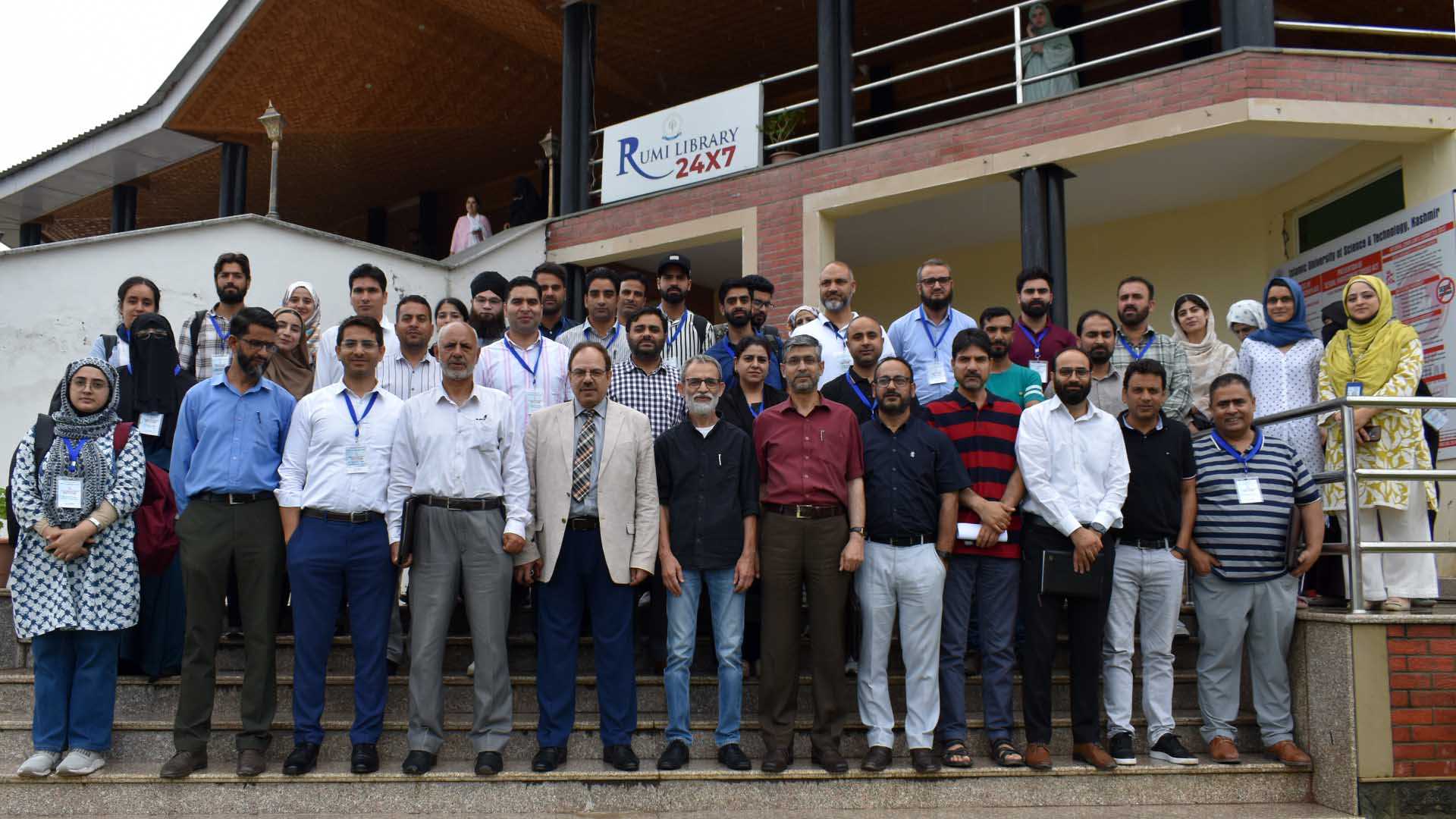
IUST concludes ICMR-sponsored workshop on molecular biology
The Watson-Crick Centre for Molecular Medicine (WCCMM), Islamic University of Science and Technology (IUST), concluded an intensive one-week hands-on training program titled "Molecular Biology Techniques for Chronic Disease Research". The workshop was supported by the Indian Council of Medical Research (ICMR), Department of Health Research, Ministry of Health and Family Welfare, Government of India.
Designed to strengthen regional capacity in biomedical research, the workshop brought together early-career faculty, research scholars, clinicians, and postgraduate students from institutions across Jammu and Kashmir. The program aimed to provide both conceptual and technical training essential for tackling chronic diseases such as cancer, diabetes, cardiovascular disorders, and infectious diseases through translational research.
The workshop featured expert lectures from national and international scientists. Key sessions included OMICS technologies by Dr. Sajad M. Zarger (SKUAST-K), synthetic biology by Prof. Pawan K. Dhar (CVJ Centre), spatial profiling in pancreatic cancer by Dr. Suhail Yousuf (IUST), translational drug models by Dr. Fayaz A. Malik (IIIM Srinagar), and the integration of molecular biology with public health in the J&K region by Dr. Rakesh Kumar (SMVDU). On the concluding day, Dr. Shabir Hassan (Khalifa University, UAE) delivered an inspiring lecture on 3D bioprinting and lab-grown tissues, offering insights into future healthcare technologies.
Inaugurating the program, Vice Chancellor Prof. Shakil A. Romshoo underscored the significance of such initiatives for the region. “Capacity building in advanced biosciences is vital to transforming our healthcare research ecosystem. IUST is committed to continuing and expanding such programs to ensure sustained skill development and innovation,” he said. The hands-on sessions were led by Dr. Muzafar A. Macha (Head, WCCMM & Organizing Secretary), Dr. Arsheed A. Ganaie (Coordinator, Centre for AYUSH Sciences), and Dr. Rais A. Ganai (Coordinator, Centre for Vocational Studies). Participants received practical training in techniques including DNA/RNA isolation, PCR, cDNA synthesis, gel electrophoresis, SDS-PAGE, and Western blotting, equipping them with skills to address real-world research challenges.
In his concluding remarks, Dr. Macha highlighted the long-term impact of the program: “Beyond technical training, this initiative has fostered a network of motivated scientists who will serve as catalysts for biomedical innovation and collaboration in the region.”
IUST concludes ICMR-sponsored workshop on molecular biology
The Watson-Crick Centre for Molecular Medicine (WCCMM), Islamic University of Science and Technology (IUST), concluded an intensive one-week hands-on training program titled "Molecular Biology Techniques for Chronic Disease Research". The workshop was supported by the Indian Council of Medical Research (ICMR), Department of Health Research, Ministry of Health and Family Welfare, Government of India.
Designed to strengthen regional capacity in biomedical research, the workshop brought together early-career faculty, research scholars, clinicians, and postgraduate students from institutions across Jammu and Kashmir. The program aimed to provide both conceptual and technical training essential for tackling chronic diseases such as cancer, diabetes, cardiovascular disorders, and infectious diseases through translational research.
The workshop featured expert lectures from national and international scientists. Key sessions included OMICS technologies by Dr. Sajad M. Zarger (SKUAST-K), synthetic biology by Prof. Pawan K. Dhar (CVJ Centre), spatial profiling in pancreatic cancer by Dr. Suhail Yousuf (IUST), translational drug models by Dr. Fayaz A. Malik (IIIM Srinagar), and the integration of molecular biology with public health in the J&K region by Dr. Rakesh Kumar (SMVDU). On the concluding day, Dr. Shabir Hassan (Khalifa University, UAE) delivered an inspiring lecture on 3D bioprinting and lab-grown tissues, offering insights into future healthcare technologies.
Inaugurating the program, Vice Chancellor Prof. Shakil A. Romshoo underscored the significance of such initiatives for the region. “Capacity building in advanced biosciences is vital to transforming our healthcare research ecosystem. IUST is committed to continuing and expanding such programs to ensure sustained skill development and innovation,” he said. The hands-on sessions were led by Dr. Muzafar A. Macha (Head, WCCMM & Organizing Secretary), Dr. Arsheed A. Ganaie (Coordinator, Centre for AYUSH Sciences), and Dr. Rais A. Ganai (Coordinator, Centre for Vocational Studies). Participants received practical training in techniques including DNA/RNA isolation, PCR, cDNA synthesis, gel electrophoresis, SDS-PAGE, and Western blotting, equipping them with skills to address real-world research challenges.
In his concluding remarks, Dr. Macha highlighted the long-term impact of the program: “Beyond technical training, this initiative has fostered a network of motivated scientists who will serve as catalysts for biomedical innovation and collaboration in the region.”
© Copyright 2023 brighterkashmir.com All Rights Reserved. Quantum Technologies